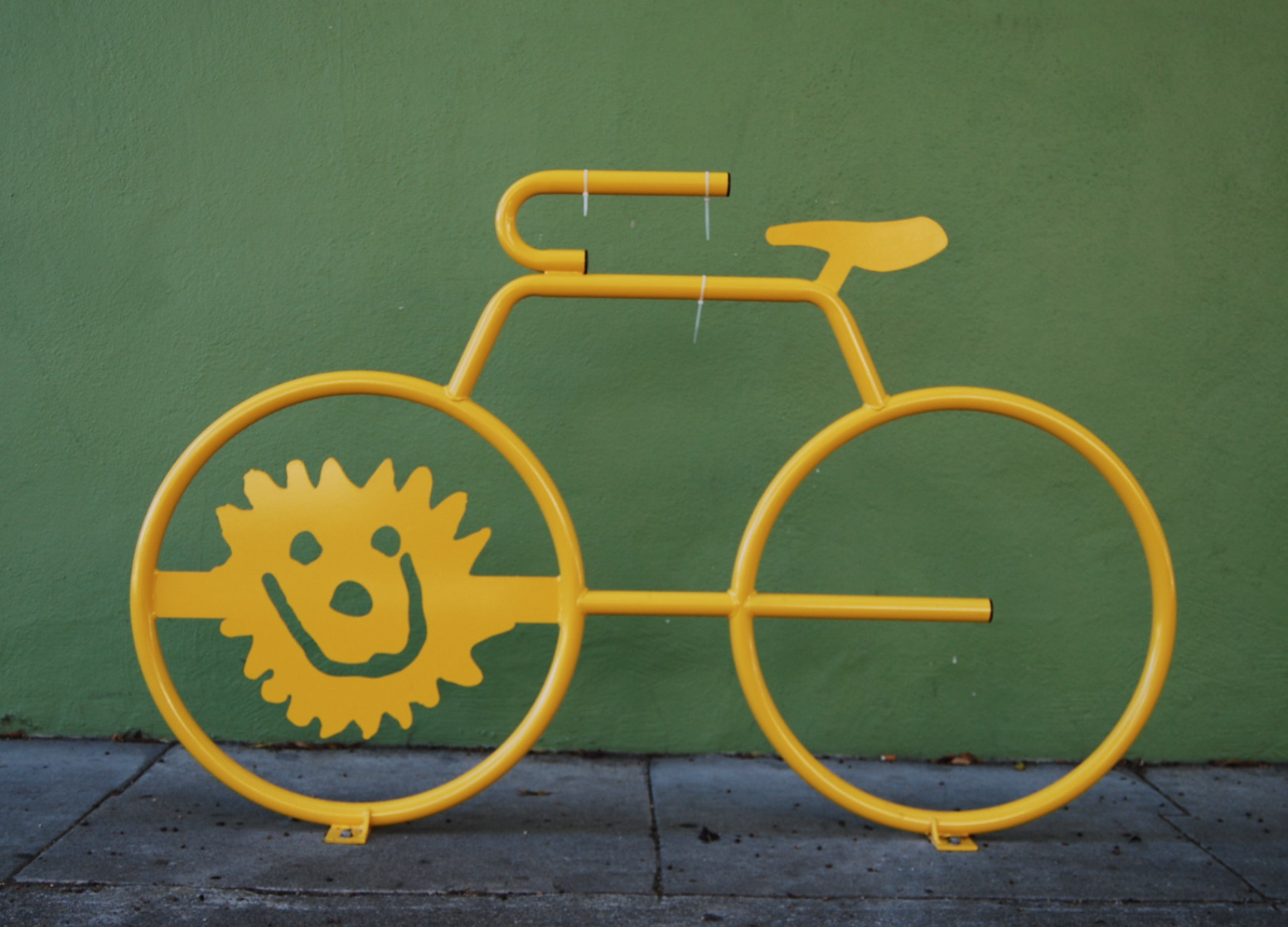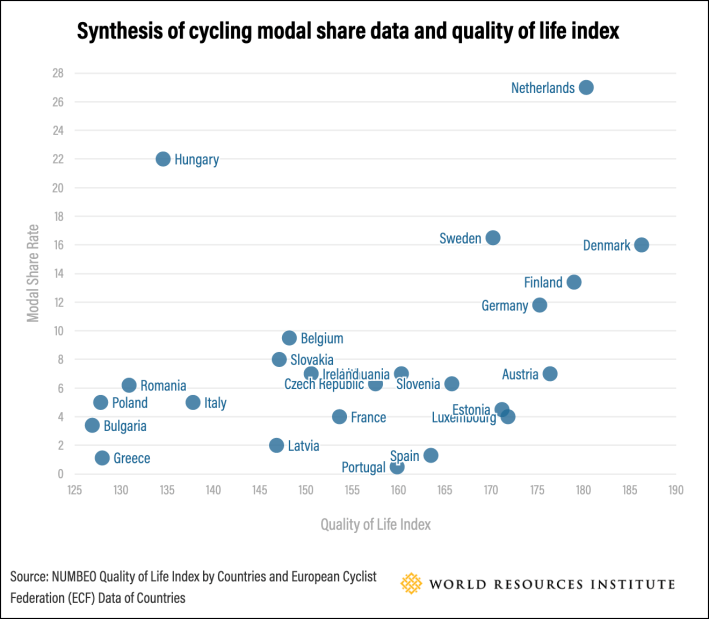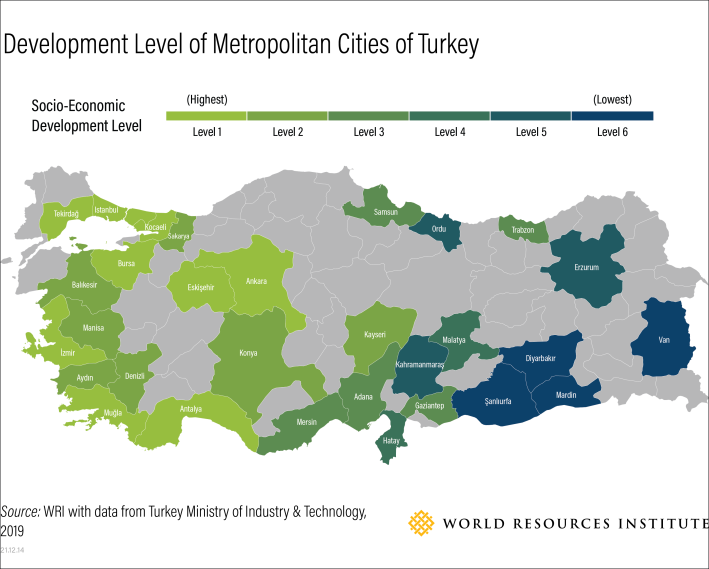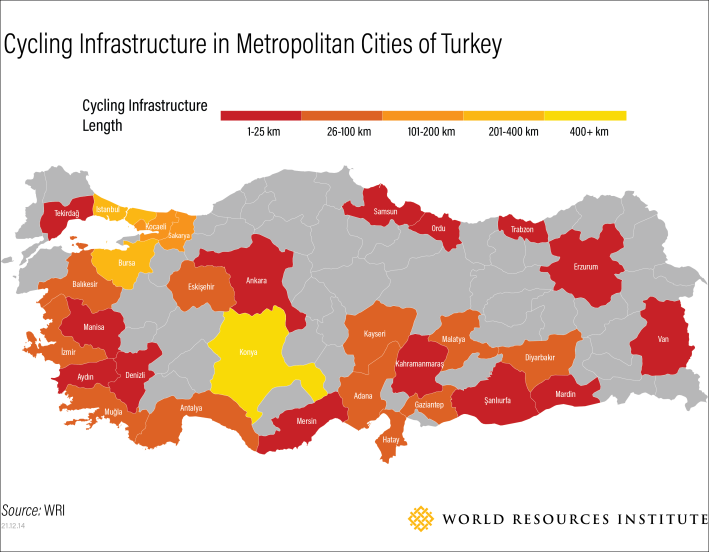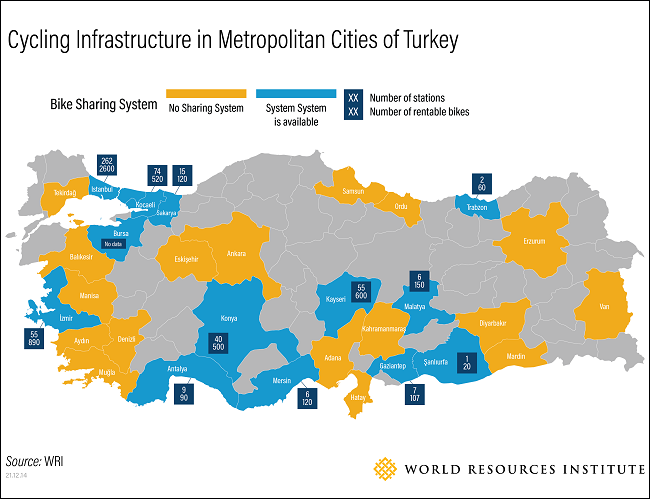Editor's note: This article originally appeared on The City Fix and is republished with permission.
Metropolitan areas around the world struggle with the same problem: More people means more traffic. If the majority of residents and workers use private vehicles, this leads to more congestion and emissions, more road crashes, lower air quality and therefore an overall decline in quality of life. But what if a significant portion of people living in cities relied on cycling or other modes of active transport? In Turkey, this led us to the question: Can supporting cycling as a key mode of travel contribute to improving quality of life for everyone?
Quality of life is often defined as a sense of well-being arising from various aspects of life that are important to a person or society. It broadens the idea of health to include mental, physical and environmental health. Assessing the overall quality of life for a city or country is not an easy task, as the factors contributing to a good life are so diverse. The global database NUMBEO currently provides a quality of life index for countries by using a purchasing power index, pollution index, house price to income ratio, cost of living index, safety index, health care index, traffic commute time index and climate index.
Perhaps not surprisingly, when examining the quality of life index and cycling modal share data for European Union countries, the most cycle-friendly countries also appear to be the most livable ones. Six of the top 10 EU countries with the highest quality of life are also among the top 10 EU countries with the largest share of cycling in the total traffic volume. In addition, of the 10 countries with a cycling modal share of 5% or less, 6 are listed as having the lowest quality of life index scores. Although we cannot infer a cause-effect relationship from these data without more detailed research, there is a correlation.
As part of the EU-funded Cycling for All project, which aims to expand cycling infrastructure in Turkey and promote it as an urban transportation mode, WRI Turkey Sustainable Cities has been working in partnership with the Dutch Cyclists’ Union, Fietsersbond, to conduct preliminary research to better understand the state of cycling infrastructure in Turkish cities and the correlation with quality of life levels.
Quality of Life Levels of Turkish Cities
In Turkey, the Socio-Economic Development Index (SEDI) provides slightly different data than NUMBEO for city and district levels. City-level measurements are conducted approximately every 10 years, with the most recent in 2017, and take into account demography, employment, education, health, competitive and innovative capacity, finance, accessibility and a range of other factors that affect quality of life. By using these variables, socio-economic development levels of 30 metropolitan cities out of 81 cities are calculated considering regional capacity and individual welfare, and the cities are classified into six groups according to their development level.
According to the index, nine metropolitan cities in Turkey are in the category of level one (most developed), seven are in level two, and five metropolitan cities are in level three. The remaining 9 metropolitan cities are in levels 4-5 and 6. Generally the western cities have a higher level of development in Turkey than the eastern ones.
Accessibility factors in the index unfortunately don’t include mobility data, nor do they include the quality and affordability of transport options, transport system connectivity, mobility substitutes, and land use patterns that would be valuable for better understanding urban mobility. However, the index does include road length and accessibility to basic technology like the internet and mobile phones.
Fortunately, metropolitan municipalities, which account for 30 out of 81 cities, are obliged to prepare Transport Master Plans that cover all types of transport modes including cycling. Many of the bigger cities, while not required, are also developing Sustainable Urban Mobility Plans and cycling master plans. These data give us more information to compare against SEDI levels.
Working Toward Cycling for All in Turkey
As seen in Figure 3, Konya leads with more than 400 km of bike lanes. Istanbul, the largest city with more than 16 million people, comes second with more than 200 km. Fourteen cities have less than 25 km of bike lanes, while 12 cities have between 25-100 km.
Only 13 cities have bike sharing systems. In terms of the number of bicycles in the sharing systems and the area they cover, Istanbul, Izmir, Konya and Kayseri have the most substantial bike sharing systems.
When this data on cycling infrastructure and bike sharing are examined together with Turkey’s socio-economic development index, it can be seen that 75% of cities with the highest-rated level of development have cycling infrastructure that covers at least 25 km. A quarter of cities at the highest level of development have 200 km or more of bike lanes. However, only half of cities at this level have bike sharing systems.
This stands in stark contrast to the 90% of cities in the bottom tiers of the development index, which have cycling infrastructure of less than 25 km and no bike sharing systems at all. There are several cities at SEDI level 3 that are actively building sharing systems and cycling networks.
The livability and development levels of cities are measured with different criteria in different countries. In addition to the indicators of a place’s social, economic and physical environment, it is also important to understand how happy people are. Here, cycling stands out as a mode of transportation that correlates well with people’s happiness level and overall development level. When the data of both EU countries and Turkey are examined, there are also parallels between the livability and development levels of cities and how much they invest in cycling, as measured by how extensive their cycling networks are and the presence of bike sharing systems.
More research is needed to better understand the correlation between cycling and quality of life in cities. But improving safe cycling infrastructure and considering cycling as part of the transportation system can be one of many important tools in wider efforts to reduce carbon emissions in cities, improve air quality, make citizens more active and healthy, and enhance their quality of life. For this reason, cities should consider cycling not on its own but as part of a broader agenda to improve the overall health and well-being of its residents.
Cigdem Çörek Öztas is Urban Development and Accessibility Manager at WRI Turkey Sustainable Cities. Murat Ölmez is Urban Planner at WRI Turkey Sustainable Cities.
